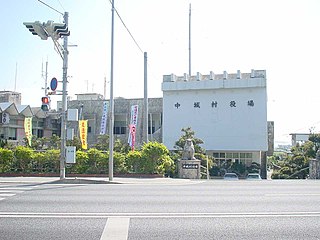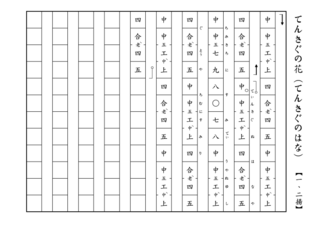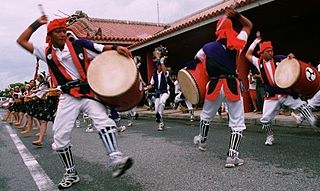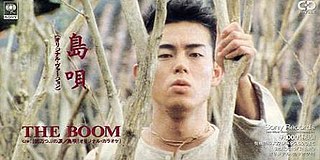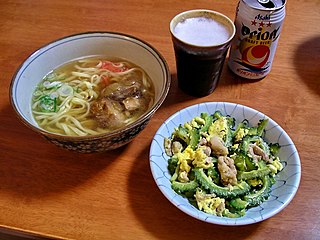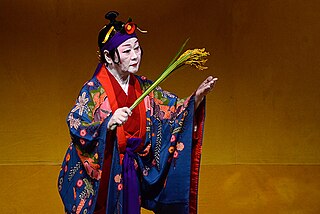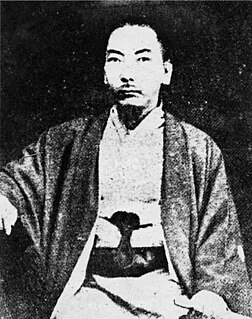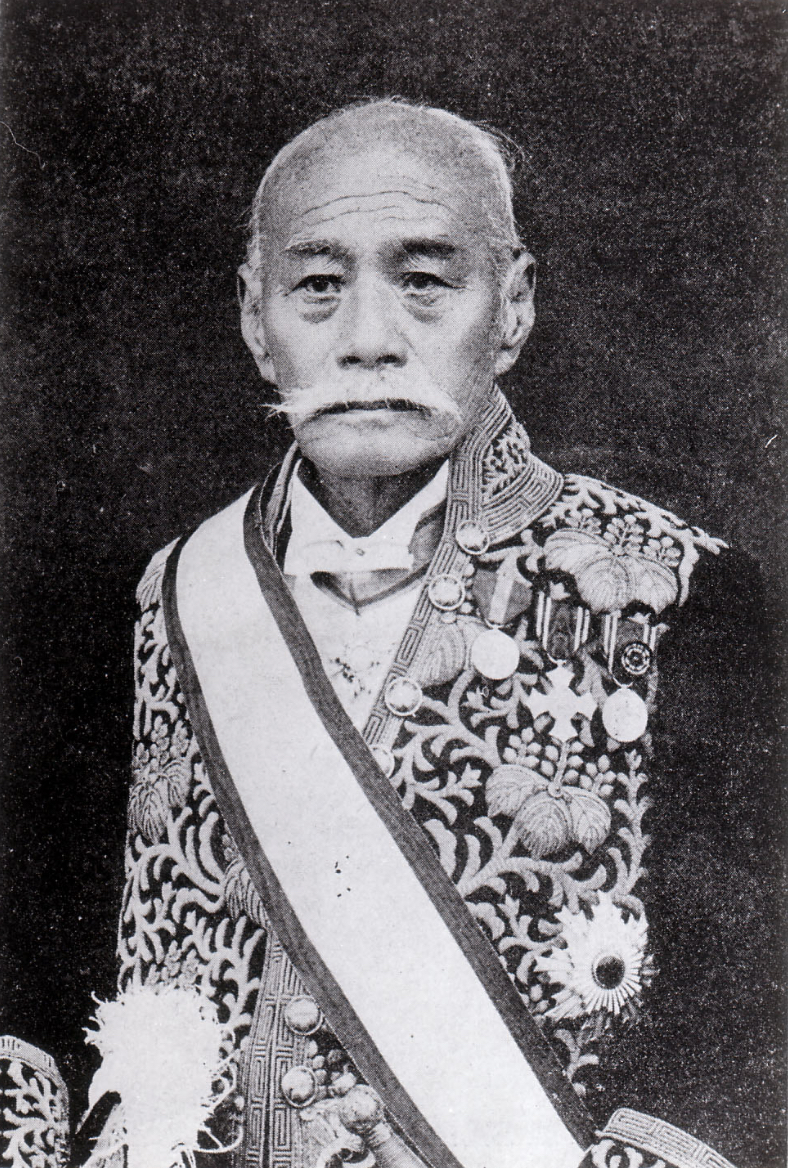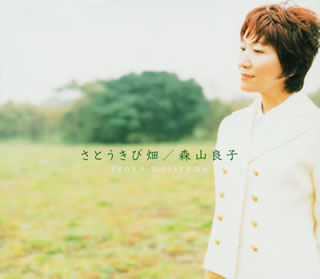Artistic style
The duo's music blends Okinawan folk songs with Western dance music and dub, and they often collaborate with native Okinawan singers and other musicians. Though their music may at times sound like a DJ's mix of dance tracks with min'yō tracks, it consists mostly, if not entirely, of compositions composed, performed and recorded as original, new pieces. It may draw extensively from traditional lyrics, tunes, and chords, it is never simply mixed from pre-existing recordings by other artists, and always includes considerable original elements. The pair started out incorporating vocals and other elements via sampling, on later albums and other releases they have worked directly with Okinawan artists, recording vocals and other elements live in the studio. [1] The duo has released four albums, and their music has been included in Buddha Bar compilation albums and used on a variety of television programs, documentaries, and other media.
Dub is a genre of music that grew out of reggae in the 1960s, and is commonly considered a subgenre, though it has developed to extend beyond the scope of reggae. Music in this genre consists predominantly of instrumental remixes of existing recordings and is achieved by significantly manipulating and reshaping the recordings, usually by removing the vocals from an existing music piece, and emphasizing the drum and bass parts. Other techniques include dynamically adding extensive echo, reverb, panoramic delay, and occasional dubbing of vocal or instrumental snippets from the original version or other works. It was an early form of popular electronic music. The Roland Space Echo was widely used by dub producers in the 1970s to produce echo and delay effects.

In music, sampling is the reuse of a portion or sample of a sound recording in another recording. Samples may comprise rhythm, melody, speech, or other sounds. They are usually integrated using digital hardware (samplers) or software such as digital audio workstations.

The Buddha-Bar is a bar, restaurant, and hotel franchise created by French-Romanian restaurateur Raymond Vișan and DJ and interior designer Claude Challe, with its original location having opened in Paris, France in 1996. The Buddha Bar "soon became a reference among foreign yuppies and wealthy tourists visiting the city", and "has spawned numerous imitators", becoming popular in part because of the DJ's choice of eclectic, avant-garde music. It became known internationally for issuing the Buddha Bar compilation albums, which are popular compilations of lounge, chill-out music and world music, also under the Buddha Bar brand, released by George V Records. Buddha Bar "has made a name for itself with its Zen lounge music CDs and remains a hit – especially with tourists". Locations have since been opened in a number of other countries, although not without controversy arising from the theme.
Though questions could be raised about Westerners appropriating Okinawan music, the duo's reception in Okinawa by locals has been described as "ecstatic". [1] The duo first tested their music in dance clubs in Okinawa, and were well received, the natives even dancing traditional kachashi dances to it. [1] [2] In an interview in 2003, Taylor expressed that "we are both sensitive to the fact that Okinawan music is an important part of Okinawan culture, and we certainly don't want to disrespect it or commercialize it in a cheap way for profit. However, I'm confident we haven't done either." [1]
Taylor cites Rinken Band, the Nenes, and Champloose, the leading bands of the 1970s Uchinaa pop boom, among the duo's influences. Just as those bands took up electric guitar and other "modern" instruments and sought to replicate the traditional folk songs, so Taylor notes that he and Gordon saw potential in doing something similar using computer equipment. [2]
Rinken Band (りんけんバンド) is an Okinawan band that helped popularize their homeland's musical forms and traditional Okinawan music starting in 1985, when their first hit, "Arigatou", was released.
Shoukichi Kina & Champloose is a Japanese band from Okinawa blending traditional Okinawan music with a strong Western rock influence. Their name is apparently derived from the word for a traditional Okinawan stir-fry, chanpuru. Singer and lead songwriter Shoukichi Kina's electric sanshin was a particularly distinctive part of their sound. First major single was the classic "Haisai Ojisan", written while Kina was still in high school but not a hit until a few years later, in 1972. Later, Champloose's version of the Okinawan folk song "Jin Jin" (Firefly) was a minor hit in British discos, and their ballad "Hana" (Flowers), with vocals by Kina's wife, became a weepy favourite in many Asian countries.

An electric guitar is a guitar that uses one or more pickups to convert the vibration of its strings into electrical signals. The vibration occurs when a guitar player strums, plucks, fingerpicks, slaps or taps the strings. The pickup generally uses electromagnetic induction to create this signal, which being relatively weak is fed into a guitar amplifier before being sent to the speaker(s), which converts it into audible sound.
Most of Ryukyu Underground's albums and singles are released by the label Respect Records (Japan).




